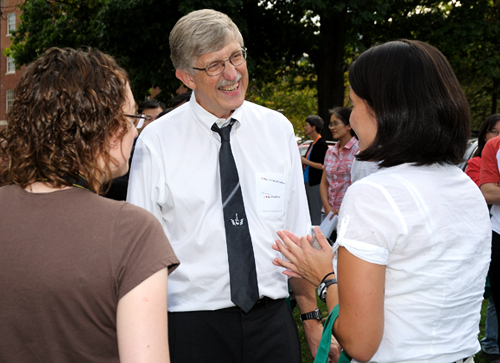
The NIH Intramural Research Program, which covers the NIH's research program centered in Bethesda, MD, is an exceptional environment for graduate study, providing an excellent training program along with the resources of a world-leading biomedical research institute. It provides an intense, collaborative, and research-focused environment -- the ideal place for motivated young scientists to pursue the highest quality research. The NIH Clinical Center is the world's largest hospital devoted to clinical research, and creates an unparalleled environment for neuroscientists to translate their findings to the bedside and perform research on clinical populations. The NIH is also home to one of the world's foremost neuroscience research centers, spanning roughly one hundred labs across seven institutes, covering every subdiscipline of the field, from human imaging to electrophysiology to genetics.
The Graduate Partnerships Program (GPP), which provides a framework for graduate studies at NIH, has existed for over a decade, and today there is a prominent graduate student community on the NIH campus, including around 500 graduate students from universities spaning the country and, indeed, the globe. The Graduate Student Council (GSC), a grad student run organization, along with the Office of Intramural Training and Education (OITE) work tirelessly to offer a variety of events both on and off campus that are catered to the graduate student community. The GSC and OITE organize community service projects and career development events to help students escape from lab as well as grow both personally and professionally while on campus. These include an annual Graduate Research Symposium, with prizes for the best presentations, and an annual graduate student retreat. These, as well as frequent social events organized by the GSC, offer a great opportunity for students to become involved on campus as well as with the surrounding community.
View Upcoming Events
Student Life

Outside of the graduate student community, NIH is also home to a remarkably diverse population of post-bacs, post-docs and investigators from around the world. Students have the opportunity to join NIH-wide special interests groups and social/cultural clubs covering a myriad of interests. These groups provide exposure to a wide range of scientific topics as well as provide the opportunity to interact with other scientists that share a common interest. In addition, NIH’s close proximity to the Washington DC metro area allows students to take advantage of the city’s cultural diversity, providing access to world class museums, art galleries, restaurants and more.
